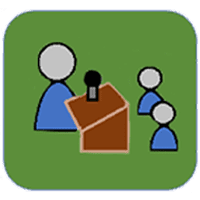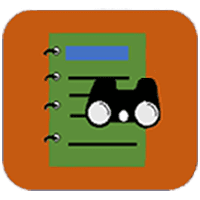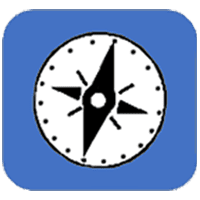Firefighter Safety
View article.
In this paper, researchers seek to address this question based on interviews with leaders engaged in the management of jurisdictionally complex wildfire incidents. They propose a multi-level framework for conceiving co-management as strategic efforts of individual actors to cooperatively manage perceived interdependencies with others through one or more formal or informal institutional arrangements. They then demonstrate the value of the proposed framework in its ability to organize a series of questions for diagnosing co-management situations within the context of jurisdictionally complex wildfires.
Conference website.
As it is already set by tradition, the Conference in Coimbra, Portugal, aims to provide an up to date on the developments in forest fire science and technology and an opportunity to meet persons and institutions, to promote international cooperation in this research and management area.
Following its previous editions, the scope of this Conference will cover the main topics related to fire management in a research perspective. There will be six major themes for you to present your work, each of them with several sub-topics, that you can find here on the website. The themes are related to Fire at the Wildland Urban Interface, Fire Risk Management, Decision Support Systems and Tools, Fire Management, Fuel Management and Socio Economic Issues. These themes are not restricted and we are open to other subjects that are proposed, as well.
Two courses, the VI Short Course on Fire Safety and the IX Short Course on Forest Fire Behaviour, will be held before the Conference, as related but separate events.
View guide.
A Preparedness Guide for Wildland Firefighters and Their Families provides honest information, resources, and conversation starters to give you, the wildland firefighter, tools that will be helpful in preparing yourself and your support network for the realities of your career. This publication does not set any standards or mandates; rather, it is intended to provide you with helpful information to bridge the gap between wellness and managing the unexpected. This publication helps firefighters and support networks such as family members, significant others, and friends prepare for and respond to planned and unplanned situations in the world of wildland firefighting. Some sections of this guide are written for the firefighter, while other sections are intended to be shared directly with support networks
Workshop recordings.
The aim of this workshop is to better understand how NASA and community expertise can be leveraged in the development of systems that monitor, assess, mitigate, and assure safety concerns of dynamic operations in challenging work environments. The primary goals are to:
- Identify and prioritize top safety-oriented risks, gaps in capabilities, and emerging technologies to enhance wildland firefighting for both near-term and mid-term operational concepts
- Engage the stakeholder community in defining emergent safety-oriented roles, responsibilities, and procedures for agents undergoing increasingly complex wildland firefighting operations in information-rich but uncertain environments
View article.
Respondents were less confident in the accuracy of wind and precipitation forecasts than relative humidity or weather forecasts more generally. The influence of weather information on the decision depended on the framing used in the choice experiment; specifically, whether respondents were told the initial strategy had been to directly or indirectly attack the fire. Across conditions, fire managers generally preferred to indirectly attack the fire. Decisions about the tactics to apply going forward were more sensitive to time in season when the fire was occurring and wind and precipitation forecasts than to other attributes.
Webinar recording.
During this peer learning session, speakers will:
- Build understanding about the spectrum of complementary actions, based on available science, to protect the built environment and community values from wildfire, improve the ecological resilience of our landscapes, and improve the safety and effectiveness of wildfire management;
- Discuss the concepts of landscape resilience, the wildland urban interface and the home ignition zone, fire management options, and the roles they play in reducing fire risk;
- Address why fire needs to be restored to the landscape;
- Consider the values that could be lost and how they relate to fire; and
- Discuss how to increase the options for fire managers to implement integrated active management.
Webinar recording.
Presented by Joe Sol, Exercise Physiologist U.S. Forest Service and Brent Ruby, Professor, Department of Health and Human Performance, University of Montana. Joe and Brent will share their research on sustainment and maintenance throughout
the fire season.
View article.
In this communication we briefly review and illustrate how forest roads relate to recent advances in operationally focused wildfire decision support. We focus on two interrelated products used on the National Forest System and adjacent lands throughout the western USA: potential wildland fire operational delineations (PODs) and potential control locations (PCLs). We use real-world examples from the Arapaho-Roosevelt National Forest in Colorado, USA to contextualize these concepts and illustrate how fire analytics and local fire managers both identified roads as primary control features. Specifically, distance to road was identified as the most important predictor variable in the PCL boosted regression model, and 82% of manager-identified POD boundaries aligned with roads. Lastly, we discuss recommendations for future research, emphasizing roles for enhanced decision support and empirical analysis.
Webinar recording.
A conversation with Bea Day, Incident Commander, USDA Forest Service, Sara Sweeney, Superintendent, Mormon Lake Hotshots, USDA Forest Service and Stuart (Stu) Rodeffer, Logistics Section Chief, Portland NIMO Team, USDA Forest Service
The Advanced Burn Boss Workshop and Fire Science Symposium (click “Log in as Guest” in the event portal) is a combined virtual event that will provide targeted training for burn bosses: RT300, IFTDSS, and smoke modeling, as well as interactive presentations for a wide audience that bridge research and practice using the three pillars of the Cohesive Strategy: Resilient Ecosystems, Fire Adapted Communities, and Safe and Effective Wildfire Response.






